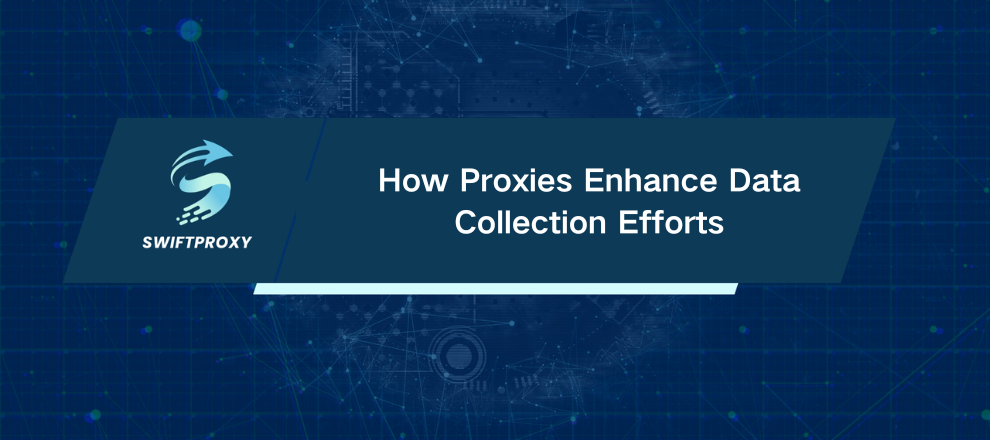How Proxies Enhance Data Collection Efforts

Imagine running hundreds or thousands of web requests without ever being flagged or blocked. Sounds powerful, right? That's exactly what proxies unlock for your data collection efforts.
If you're scraping websites for market research, competitive analysis, or business insights, proxies aren't just an option — they're essential. But not all proxies are created equal. Knowing how to pick, set up, and use them properly can save you hours of headaches and boost your results dramatically.
What Is a Proxy and Why Does It Matter
Think of a proxy as your online disguise. Instead of your real IP address hitting a website, the proxy server steps in and makes requests for you. This masks your location and identity, letting you access data without tipping off the website that it's you.
This means:
Accessing geo-restricted content
Avoiding IP bans when sending multiple requests
Collecting data anonymously and securely
But beware—free proxies often come with slow speeds, limited bandwidth, and reliability issues. Worse, many websites detect and block them outright. For serious data collection, a trusted paid proxy provider with high-speed servers and broad geographic coverage is non-negotiable.
Picking the Right Proxy for Your Project
Static proxies keep a single IP address throughout your session. Perfect for tasks that require a consistent identity — like managing accounts or scraping sites that flag changing IPs.
Rotating proxies switch your IP after each request or at set intervals. Ideal for large-scale scraping where you bombard sites with high volumes of requests without getting blocked.
Free proxies might sound tempting, but their downsides are real: slow response times, frequent blocks, and security risks. Instead, lean toward private proxies from reputable providers like Swiftproxy. They offer better speed, stronger encryption, and flexible plans tailored to different scales.
Setting Up Your Proxy
Once you have your proxy, it's time to get it working:
Browser setup: Enter the proxy IP and port in your browser's network settings. If your provider requires it, add your username and password when prompted.
In your scripts: If you collect data using code (Python, JavaScript, etc.), pass proxy details in your request settings. This routes your traffic through the proxy automatically — no manual fuss.
Advanced anonymity: Tools like the DICloak antidetect browser take it further. They mask your IP and your browser fingerprint, making it look like your requests come from an entirely different device. This is a game changer for managing multiple accounts or avoiding detection.
Pro Tips to Maximize Data Collection
Want to avoid blocks, speed up scraping, and collect reliable data? Follow these:
Rotate your proxies: Changing IPs with every request or batch keeps you under the radar. This tactic helps dodge rate limits and keeps websites from locking you out.
Verify data thoroughly: Scraping isn't perfect. Run automated checks for duplicates, missing fields, or format errors. If necessary, spot-check manually. Clean data is actionable data.
Stay ethical: Only scrape publicly available info or data you have rights to use. Don't violate privacy or terms of service. Ethical scraping protects your reputation and avoids legal headaches.
Know your laws: Data regulations vary wildly by region. Be clear on what's legal where you operate. And always follow your proxy provider's and target sites’ rules.
Conclusion
Proxies are more than just technical tools. They are your key to efficient, scalable, and secure data collection. When used wisely, they help you bypass roadblocks, protect your identity, and unlock insights that drive real business value. Set them up correctly, stay compliant, and you’ll gain a powerful edge in any data-driven operation.

















































